What is Arbitrum? A Layer 2 technology for Ethereum Blockchain
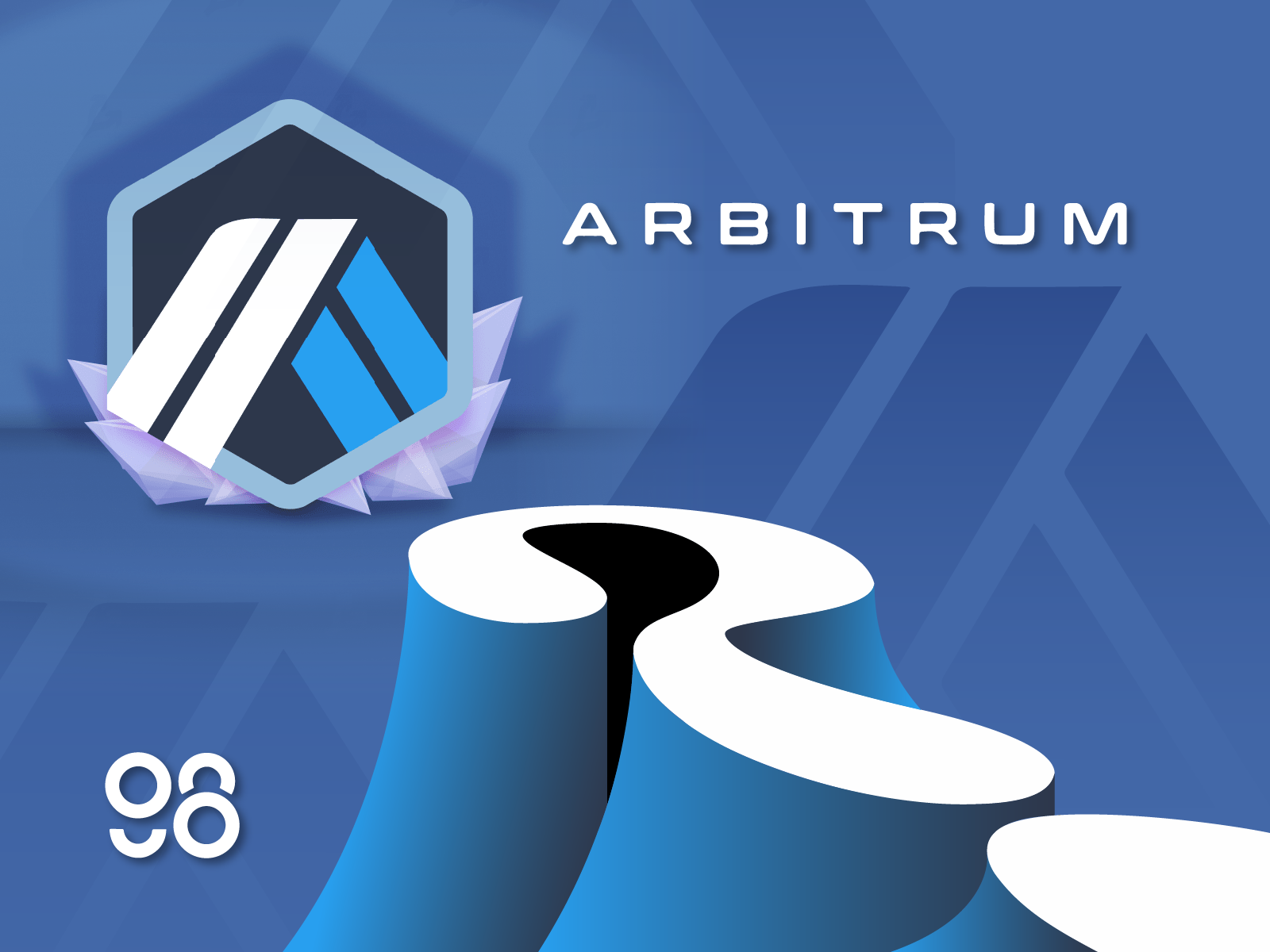
What is Arbitrum?
The Arbitrum protocol is a Layer 2 technology developed by Offchain Labs, a New York-based business, that aims to reduce Ethereum network congestion by changing how smart contracts are approved.
Arbitrum is offering a unique combination of benefits:
- Trustless security: Security rooted in Ethereum, with any one party able to ensure correct Layer 2 results.
- Compatibility with Ethereum: Able to run unmodified EVM contracts and unmodified Ethereum transactions.
- Scalability: Moving contracts’ computation and storage off of the main Ethereum chain, allowing much higher throughput.
- Minimum cost: Designed and engineered to minimize the Layer 1 gas footprint of the system, minimizing per-transaction cost.

How does Arbitrum work?
Arbitrum plans to provide 3 scaling solutions: Rollup (OPU), Channels, Sidechains.
- State Channels: Requires users to send Ethereum state snapshots into a Multi-sign Contract. This state will contain important data such as the balance of the address. Such a system allows free off-chain transactions with instant completion and superior privacy.
- Sidechains: Independent blockchains with their own independent consensus rules where Ethereum transactions can be routed in a supervised manner to reduce the burden on the Ethereum mainnet.
- Rollups: Like enhanced sidechains, can greatly expand the throughput capacity of the Ethereum mainnet. So far, the aggregation has four main types of rollup: Optimistic Rollups, zkRollups, Plasma, Validium.
Layer-2 Solution
As the broader crypto industry experiences a late summer boom in enthusiasm, more blockchain developers who have taken the plunge are running into the obvious scaling challenges that decentralized apps on the Ethereum blockchain are experiencing.
The network's popularity has skyrocketed in the last year, but transaction volume has remained frustratingly steady as the network continues to operate at capacity, resulting in slower transaction speeds and high fees on the overcrowded chain.
Ethereum's core developers have been preparing large blockchain updates to address these concerns, but even in the early stages of the crypto world, migrating the network is a difficult and time-consuming operation. As a result, developers are turning to Layer 2 rollup scaling solutions.
Therefore, Arbitrum aims to use Ethereum as its Layer 1, it would be ideal if we could reuse all of the existing technology with minimal changes. Developer experience would increase because they wouldn't have to master a new technology stack.
In the past, the gas fee for a simple job on Ethereum like a standard token swap was always $50, and there were instances when it reached $100 for every transaction.
Arbitrum Rollups
Arbitrum that Optimistic Rollup is the best way to meet users’ realistic needs for a secure, trustless, EVM-compatible L2.
Optimistic Rollups are a type of scaling solution that dramatically reduces the cost of having every Ethereum node perform every transaction. The actual execution of transactions is relocated to Layer 2 land rather than Ethereum.
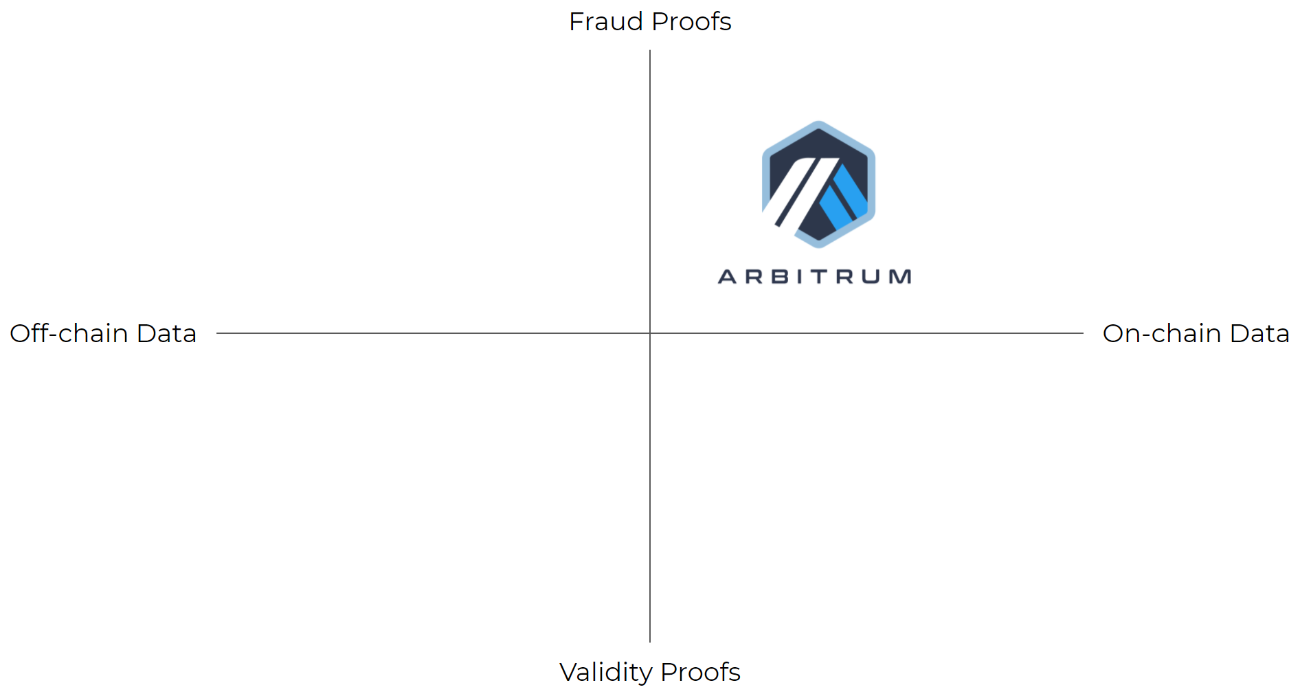
Arbitrum Ecosystem
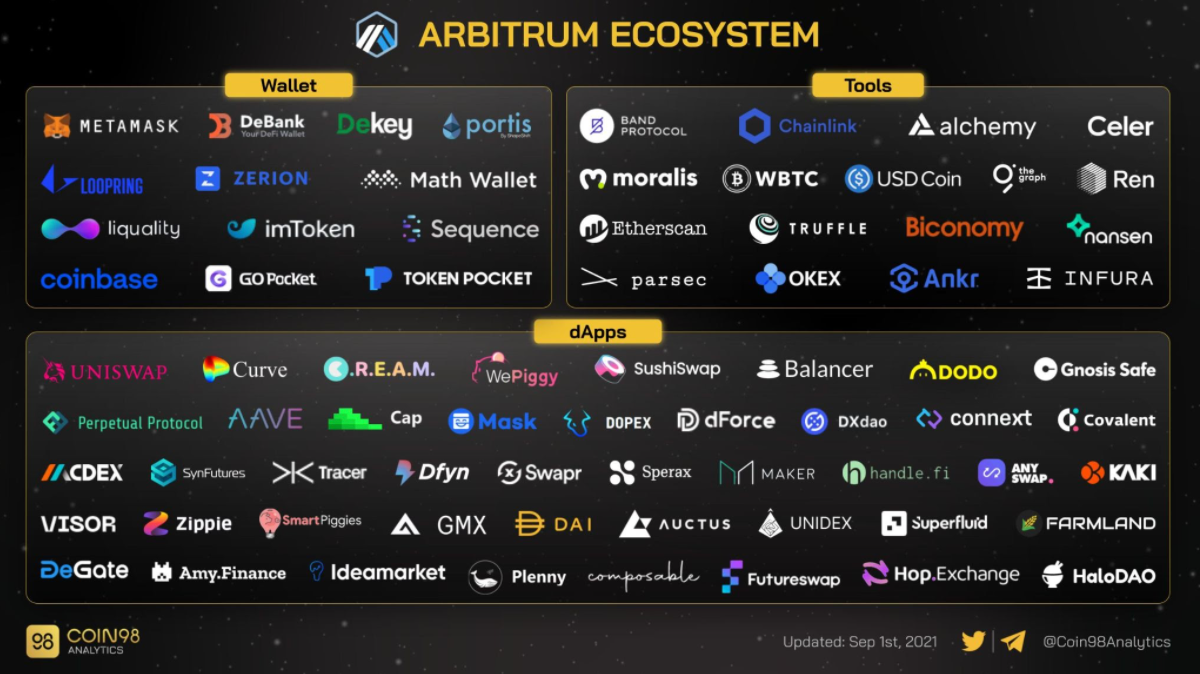
The number of integrated Arbitrum projects is over 70 projects.
DeFi: Curve, Uniswap, SushiSwap, Cream Finance, etc.
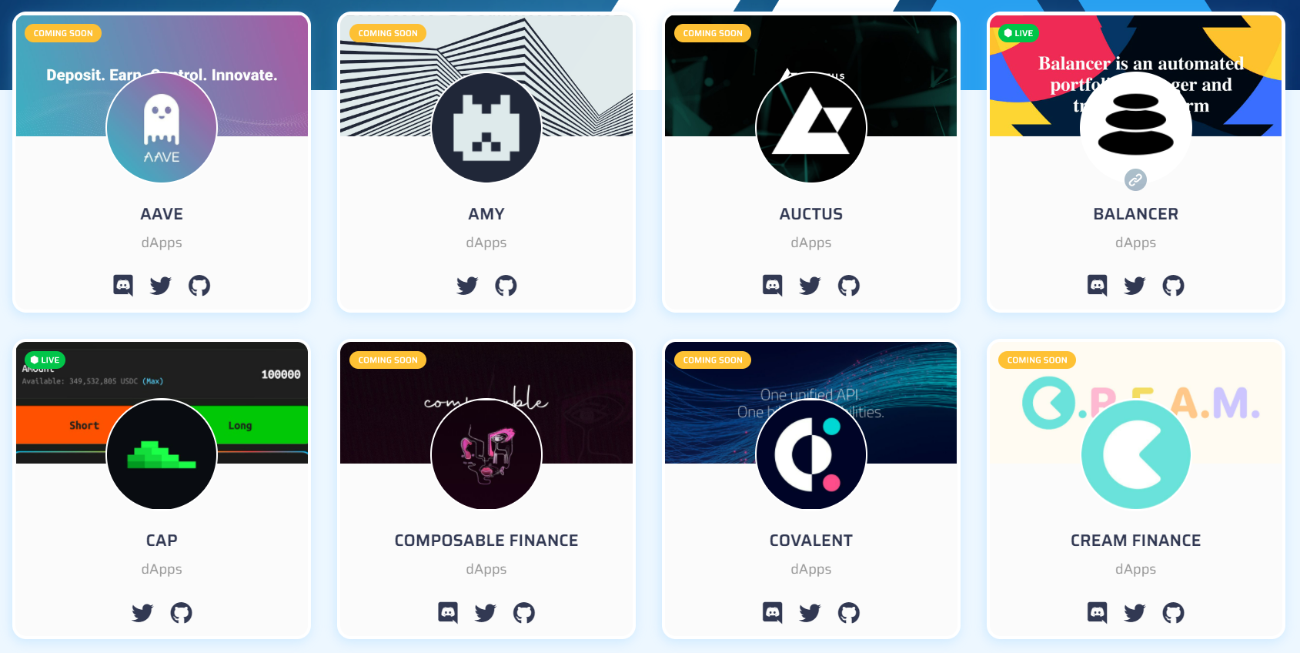
Bridge: Hop Exchange, AnySwap, CONNEXT, etc.
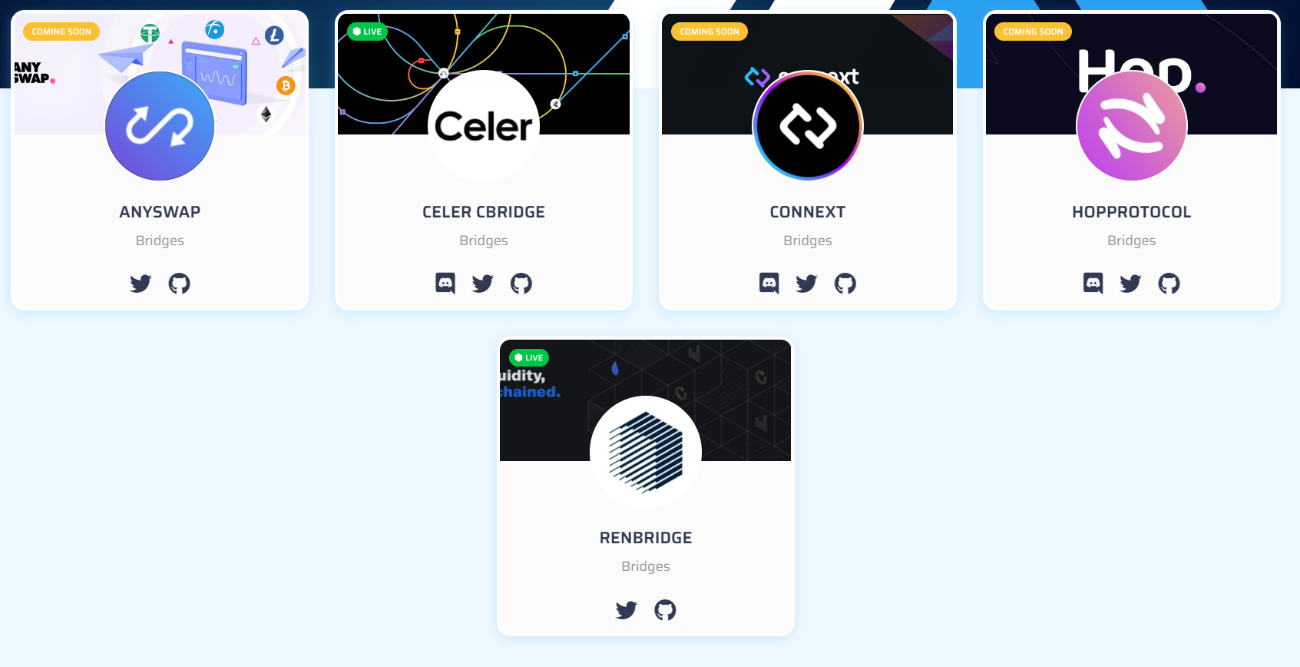
Wallet: DeBank, Metamask, Coinbase Wallet, etc.
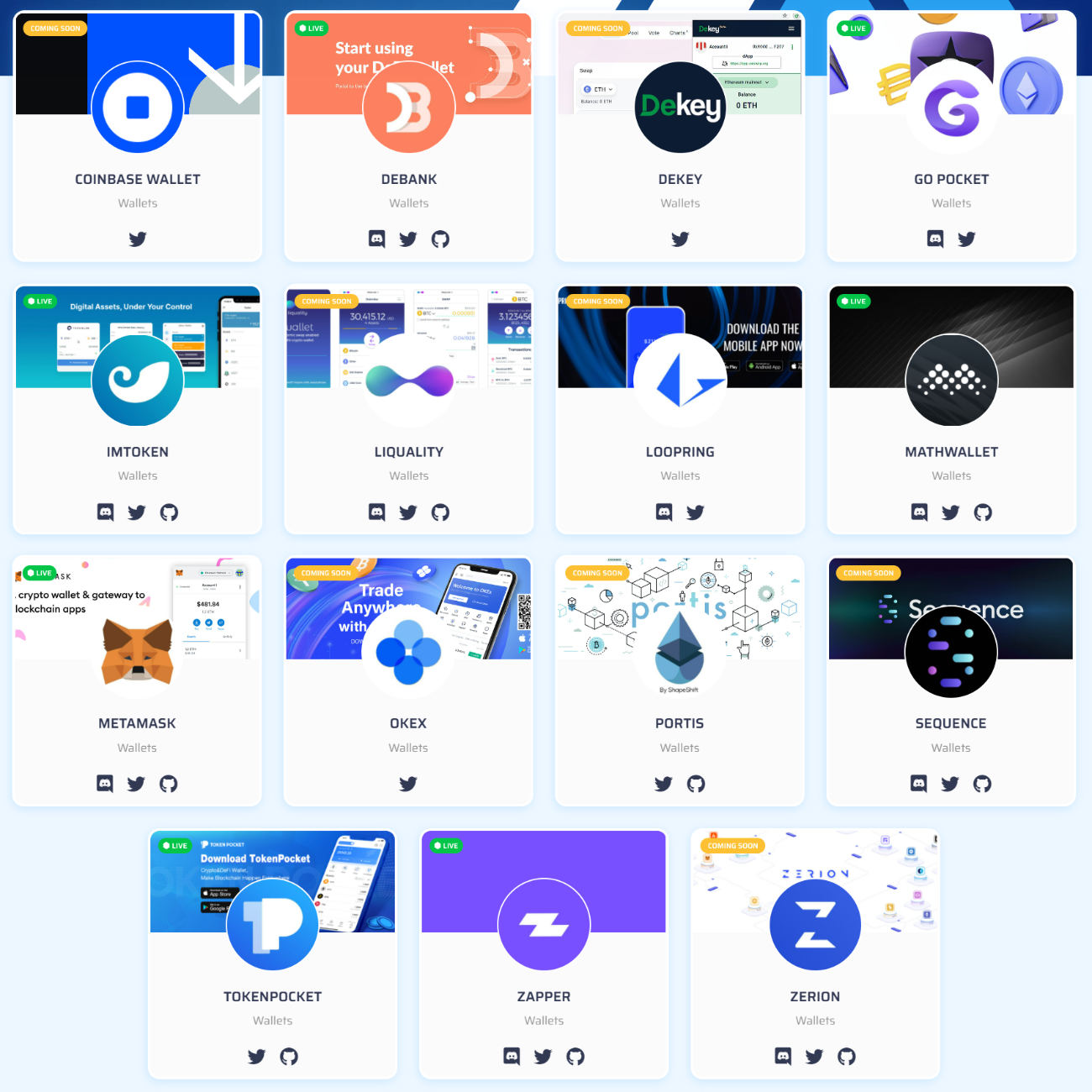
Tools: Alchemy, BAND Protocol, Biconomy, Ankr, etc.
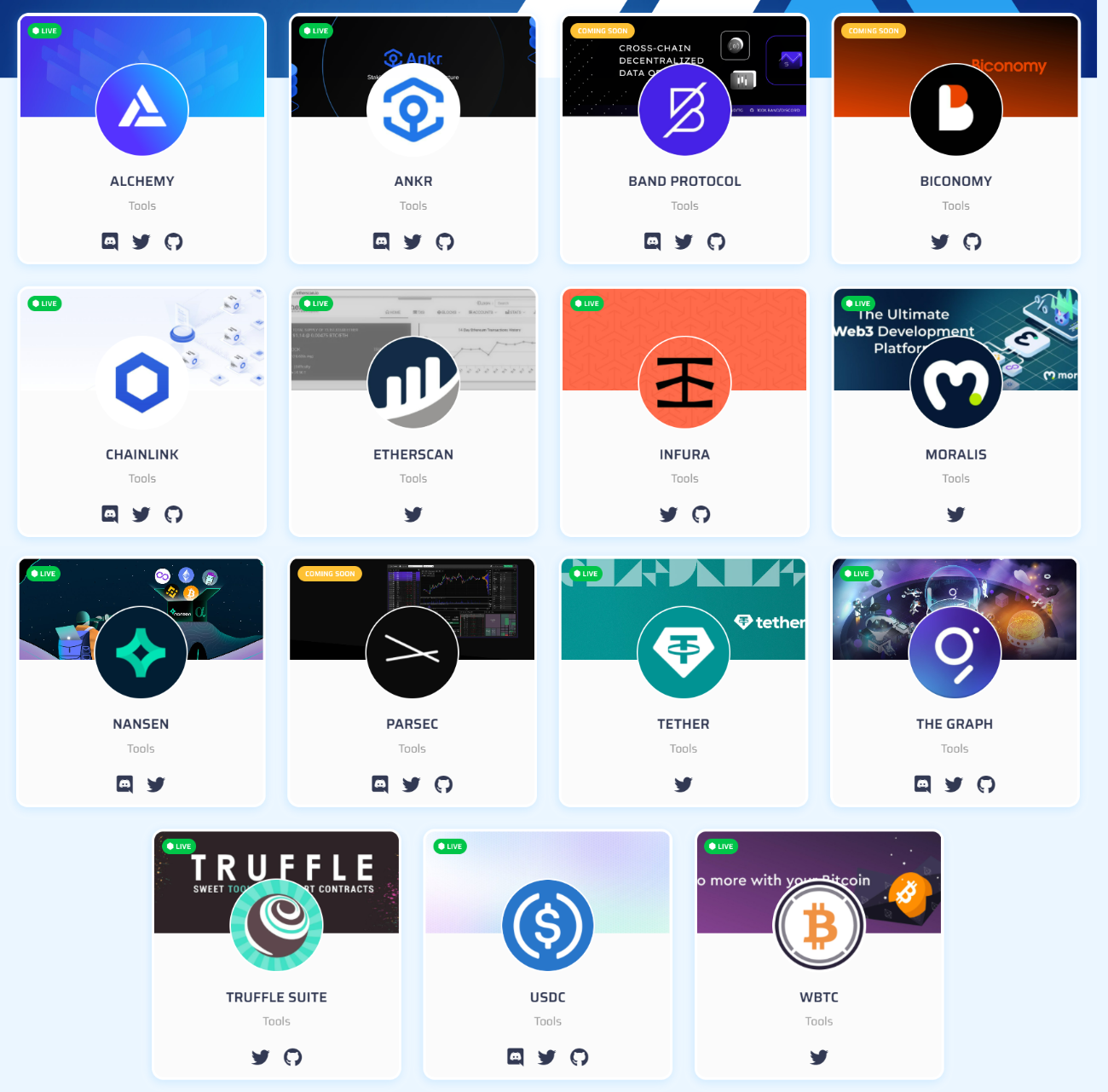
Team, investors and partners
Team
Ed Felten (Co-Founder & Chief Scientist of Offchain Labs): He is on leave from Princeton University, where he is the Robert E. Kahn Professor of Computer Science and Public Affairs. From 2015 to 2017 he served at the White House as Deputy United States Chief Technology Officer and senior advisor to the President. He is an ACM Fellow and member of the National Academy of Engineering.
Steven Goldfeder (Co-Founder & CEO of Offchain Labs): He holds a PhD from Princeton University, where he worked at the intersection of cryptography and cryptocurrencies. He is a co-author of Bitcoin and Cryptocurrency Technologies, the leading textbook on cryptocurrencies.
Harry Kalodner (Co-Founder & CTO of Offchain Labs): He attended Princeton as a PhD candidate where his research explored economics, anonymity, and incentive compatibility of cryptocurrencies.
Investors
Arbitrum raised a $20 million Series A in April 2021, quickly followed up by a $100 million Series B led by Lightspeed Venture Partners, which closed in August 2021. Other investors include Polychain Capital, Ribbit Capital, Redpoint Ventures, Pantera Capital, Alameda Research and Mark Cuban.
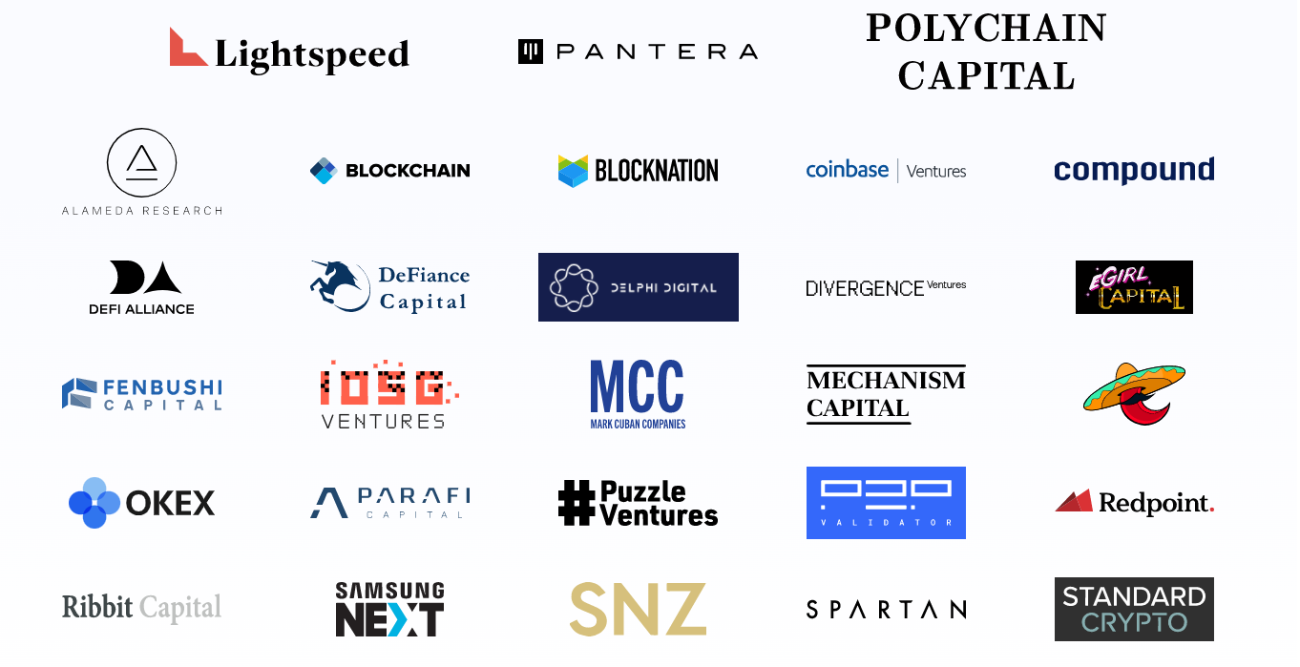
Partners
Coin98 Super Wallet has integrated Arbitrum, an Ethereum Layer2 scaling solution that reduces gas fees and Ethereum's scalability.
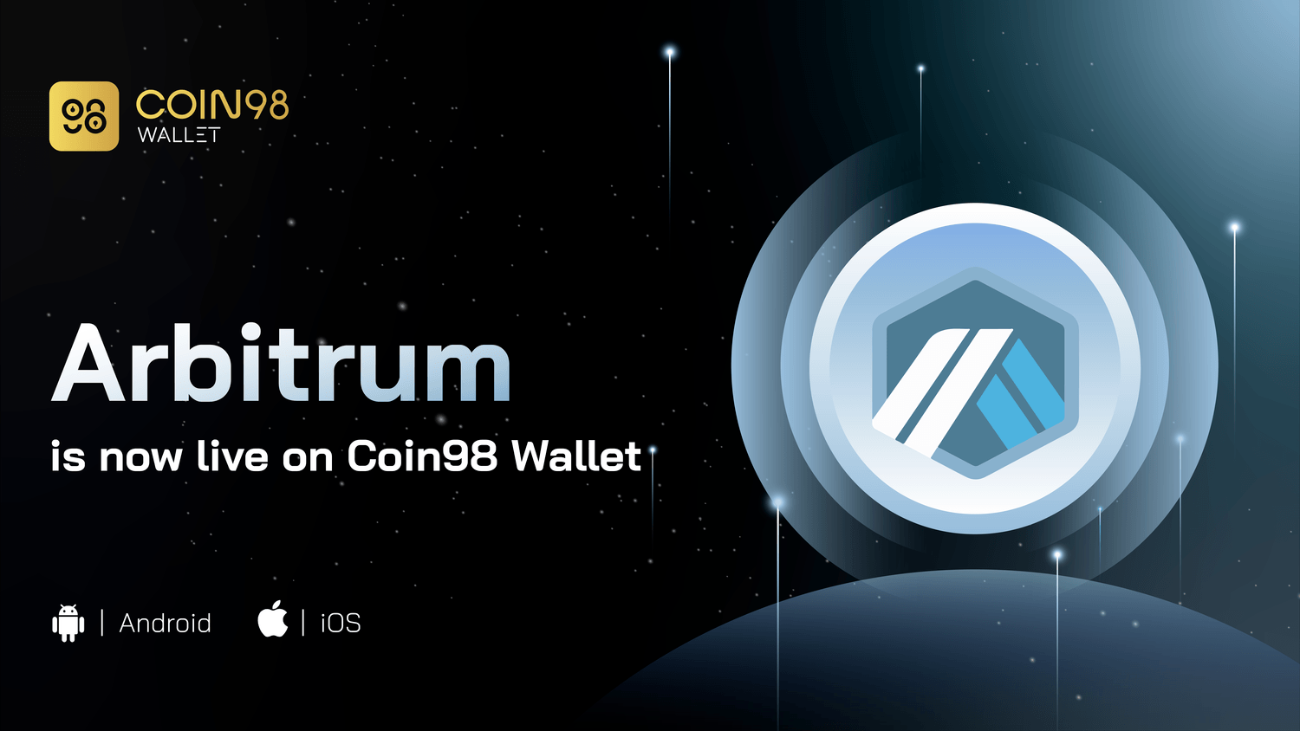
Should we invest in Arbitrum?
In addition, the competition of Layer 2 is relatively significant at the moment, it is expected that Arbitrum will have more breakthroughs in the future. Arbitrum has a lot of competitors at the moment like Boba Network, Optimism, etc.
Learn more: Optimism Ecosystem: From an L2 solution to an ecosystem
The Layer 2 landscape is still developing, but it's already gaining traction. While it is unknown whether Arbitrum will ever have a retroactive airdrop for early adopters, it is likely worth becoming an active user of these systems in the case that they do.
Many DeFi projects already use Arbitrum. Arbitrum's TVL (Total value locked) grew very rapidly in just a short time after launch and, at one point, was more than $2.5 billion. Currently, Arbitrum is Layer 2 with the largest TVL.
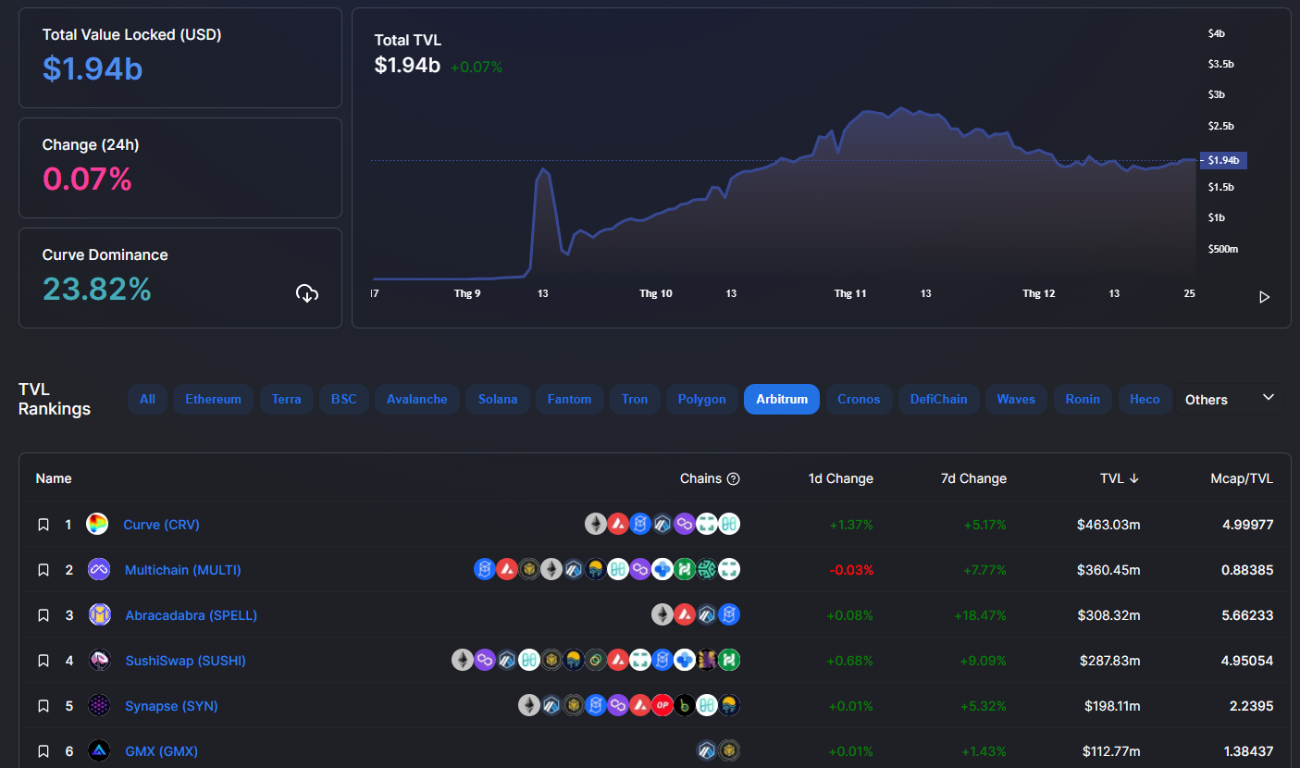
Disclaimer: All the information in this article is only for information purposes and should NOT be considered investment advice. Investing in Crypto contains hugely high risks, and you should only invest the fund you are willing to lose.
Similar Projects
Optimism: A rollup scaling solution that allows users to submit transactions on the Ethereum network and get them executed faster for a much lower gas cost.
Boba Network (BOBA): A Layer 2 Ethereum scaling & augmenting solution built by the Enya team as core contributors to the OMG Foundation.
Celer Network (CELR): A layer-2 scaling platform that enables fast, easy, and secure off-chain transactions for payments and generalized off-chain smart contracts.